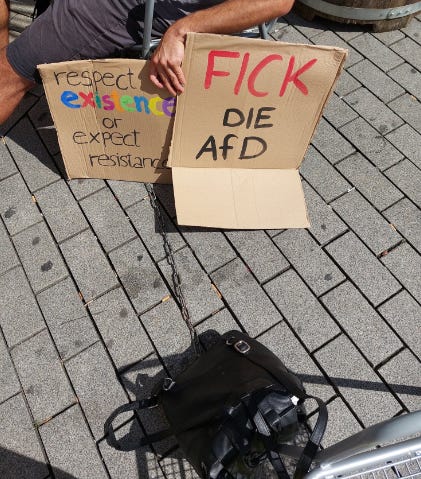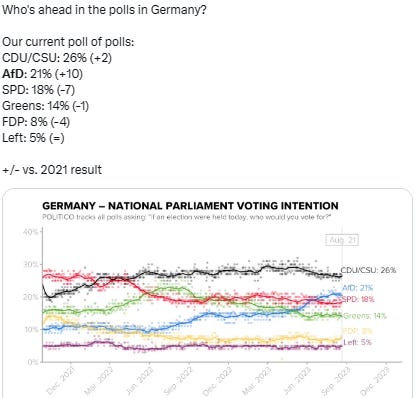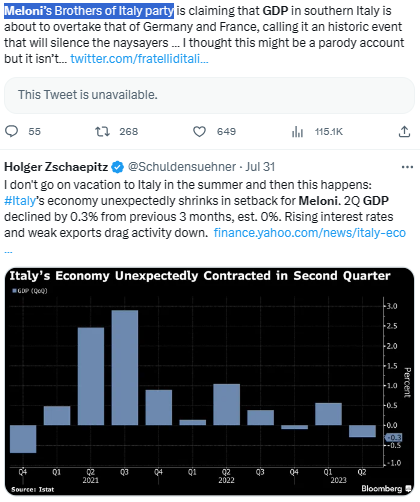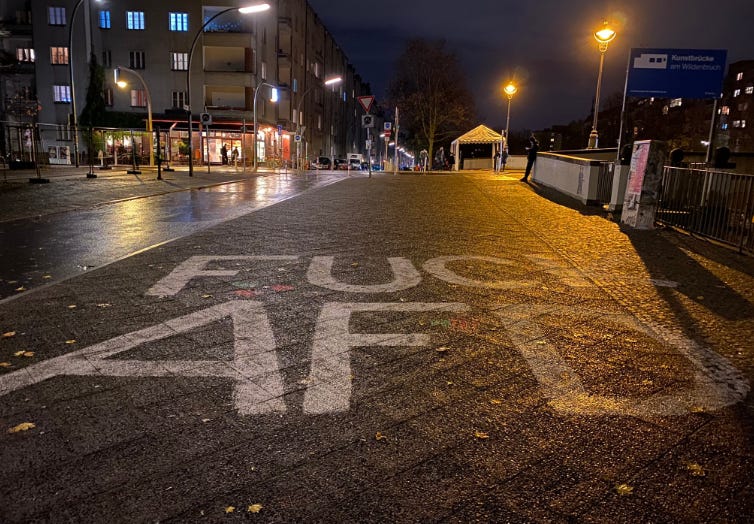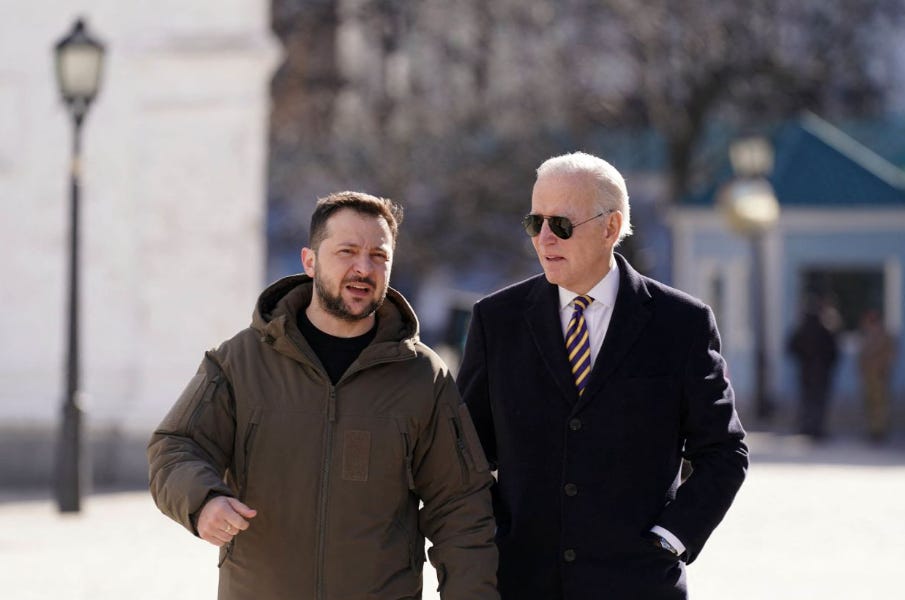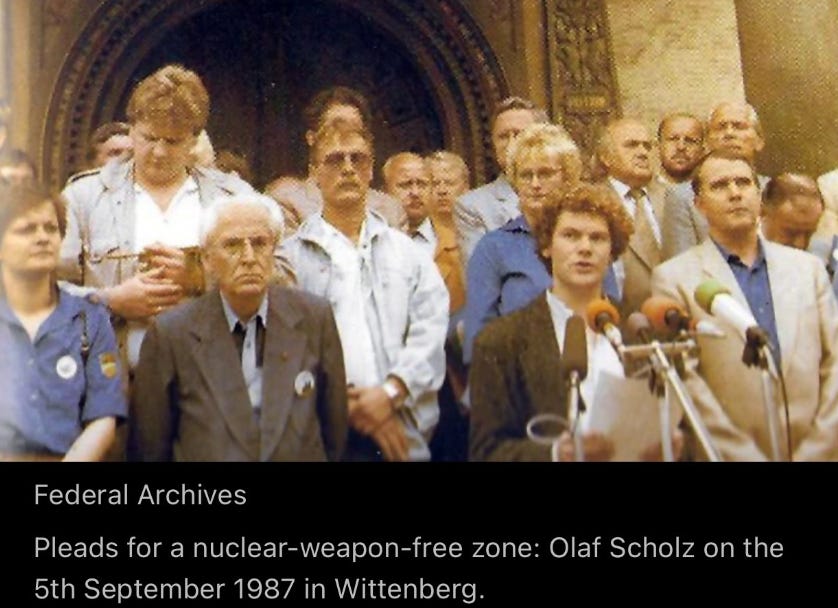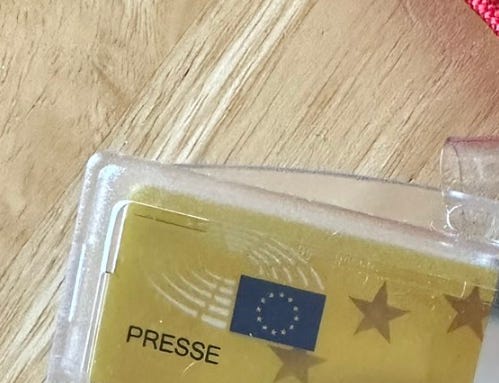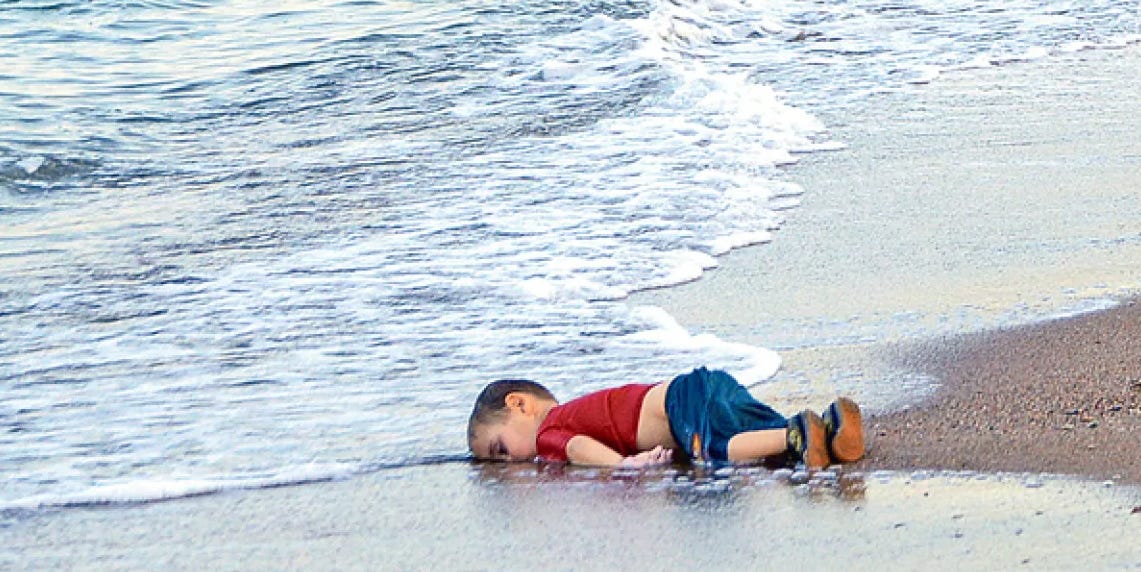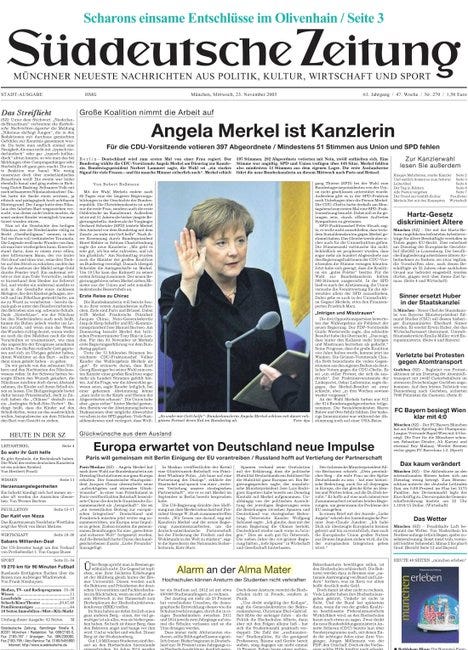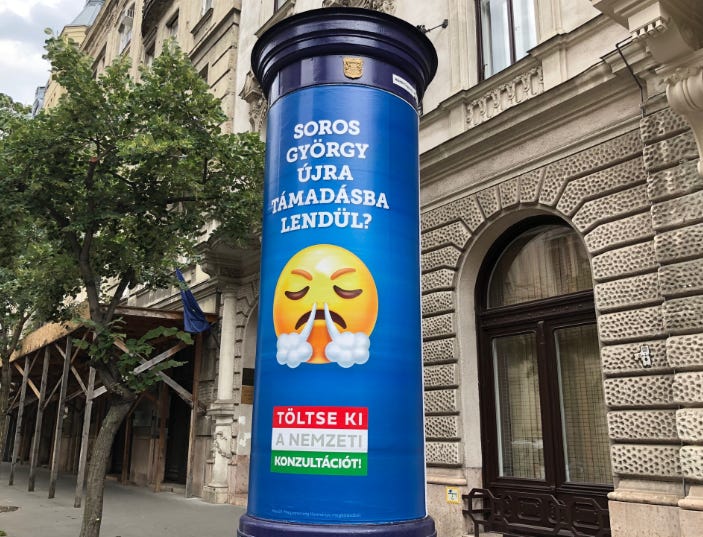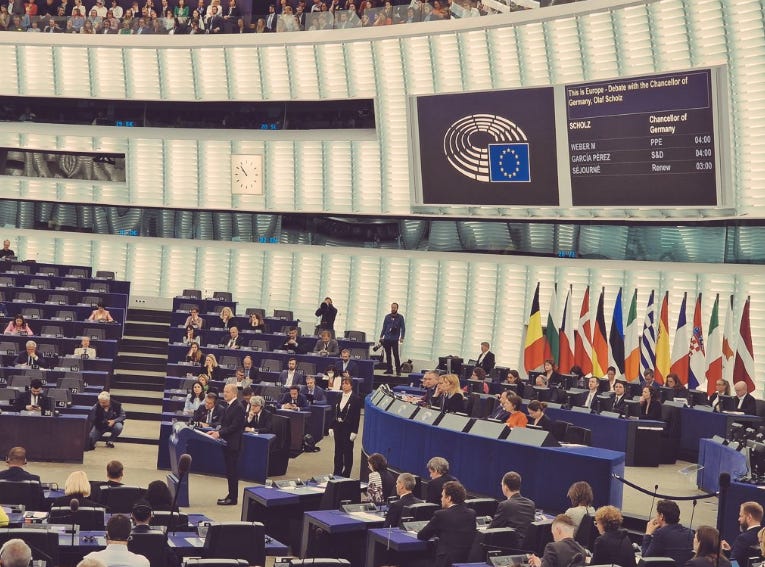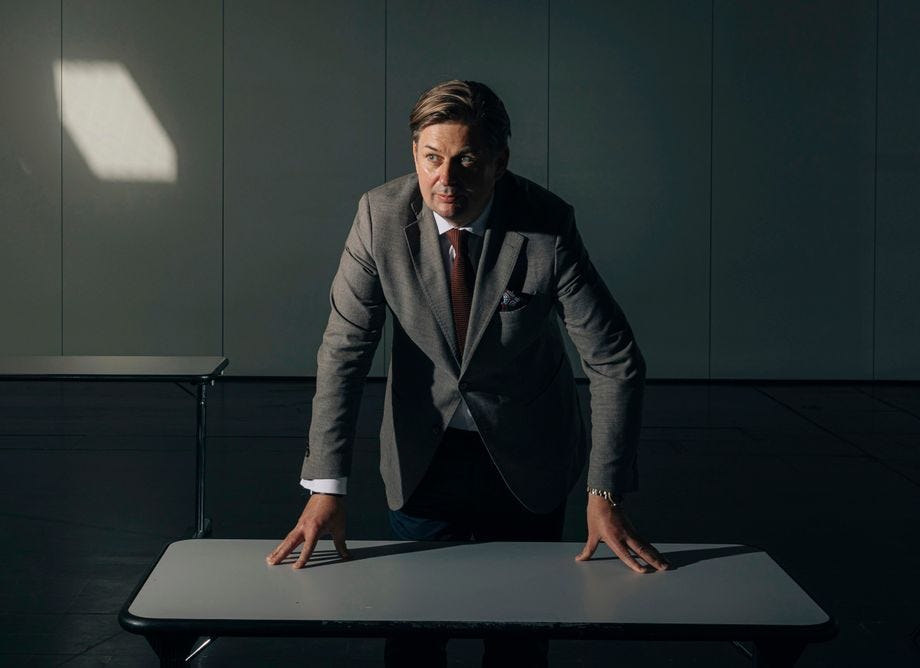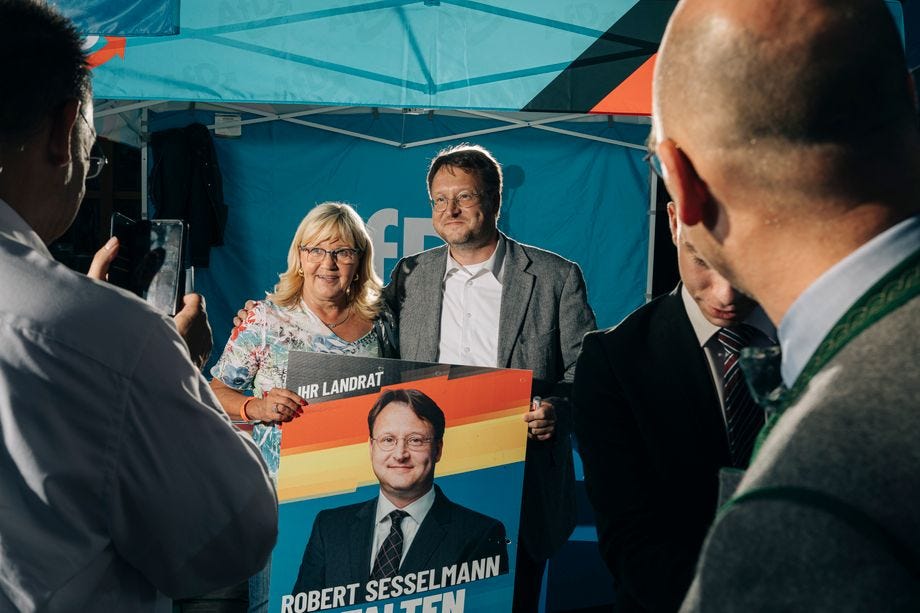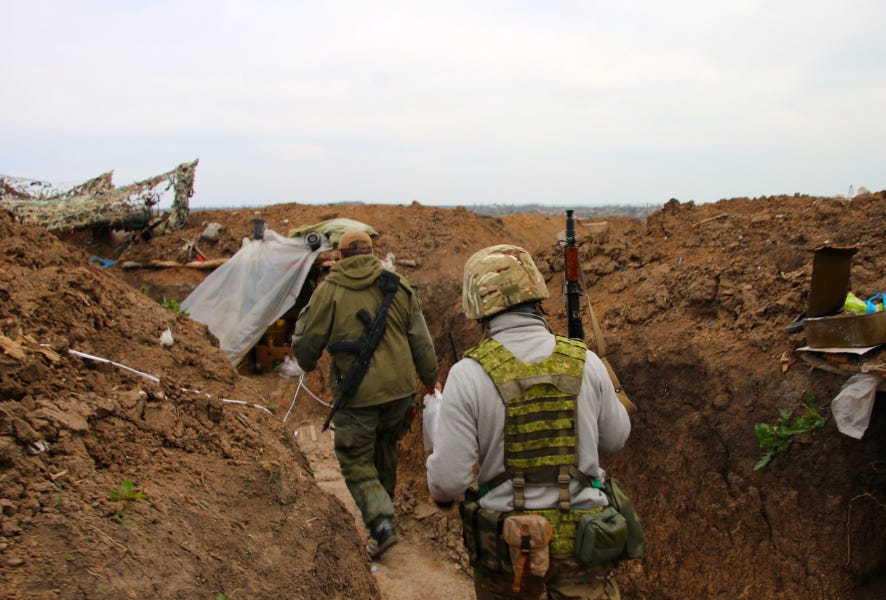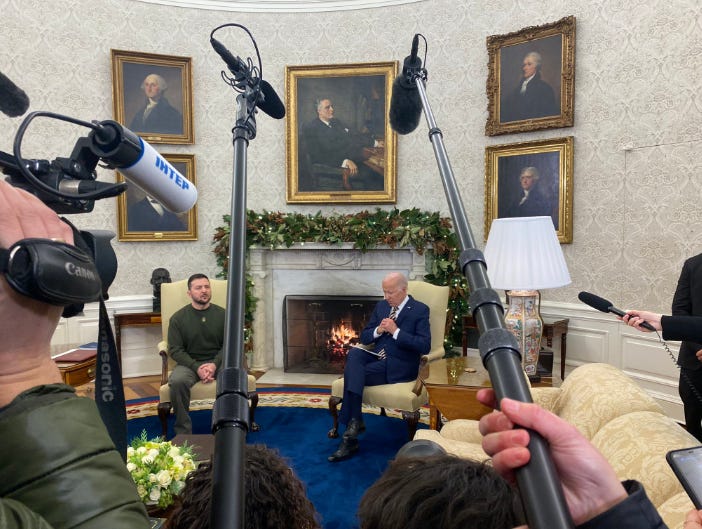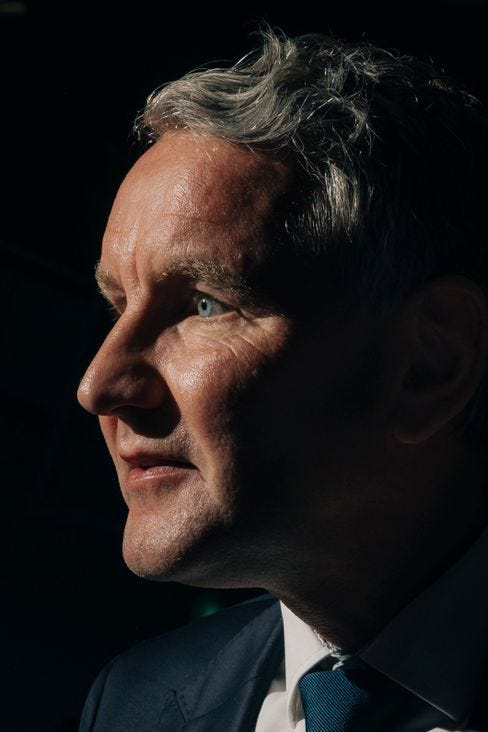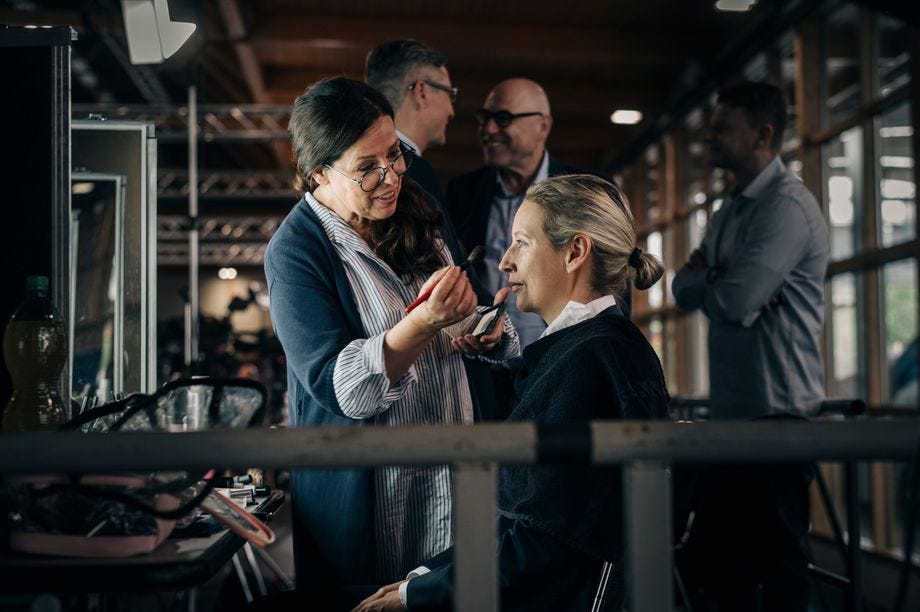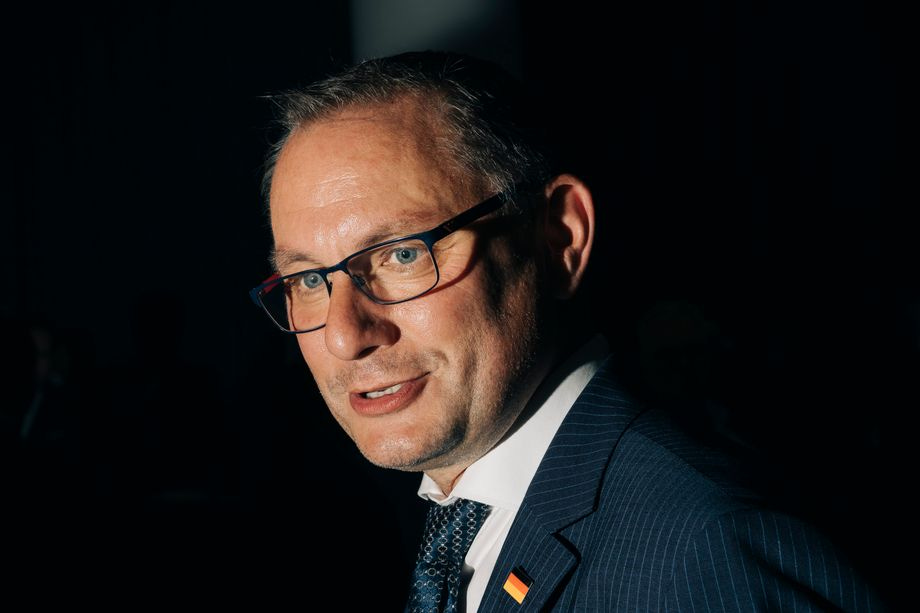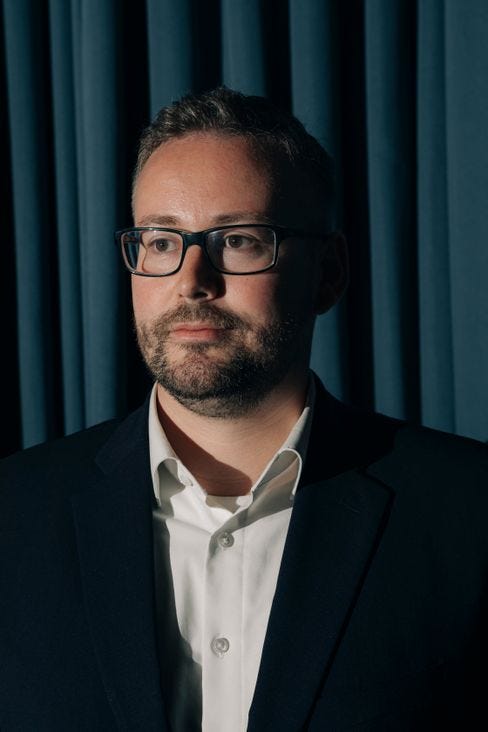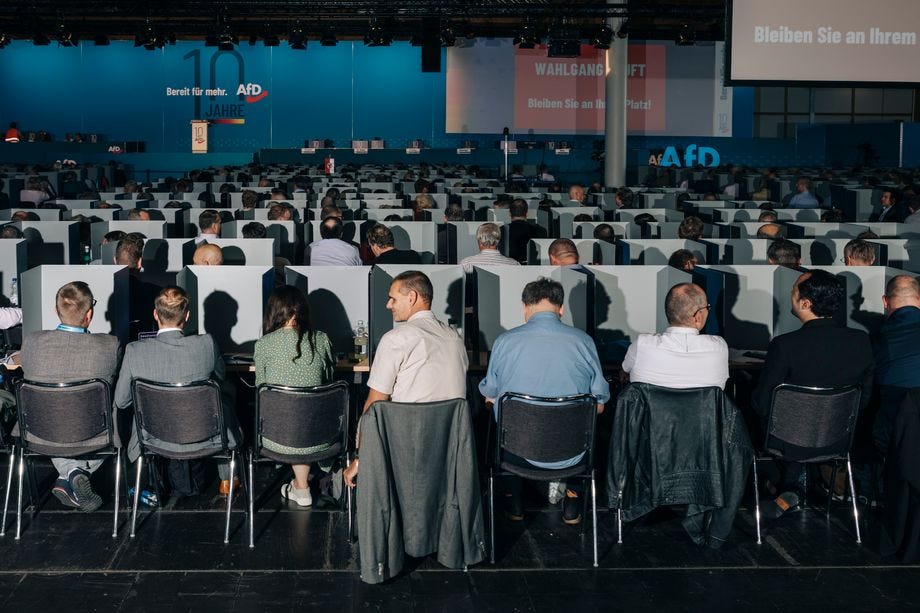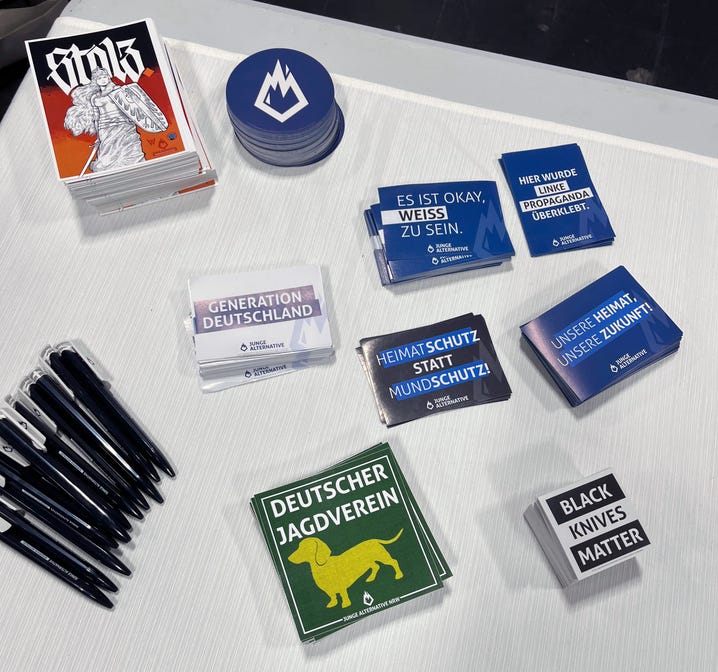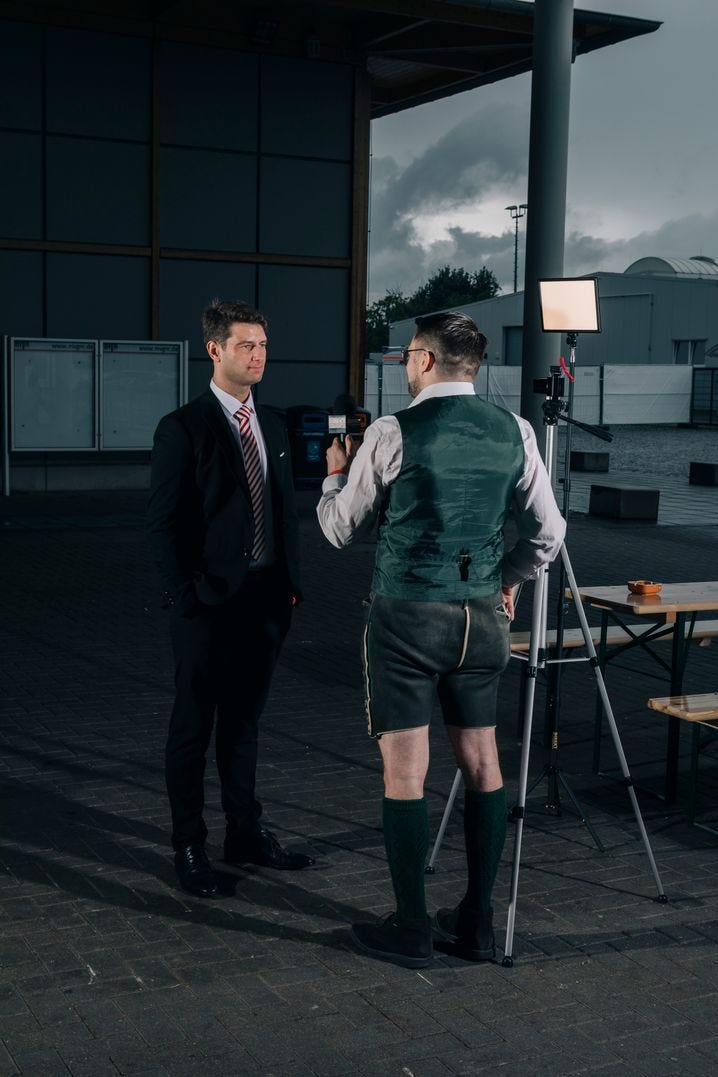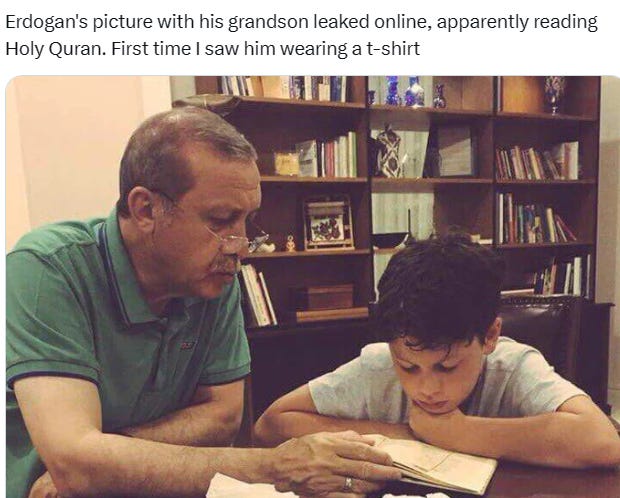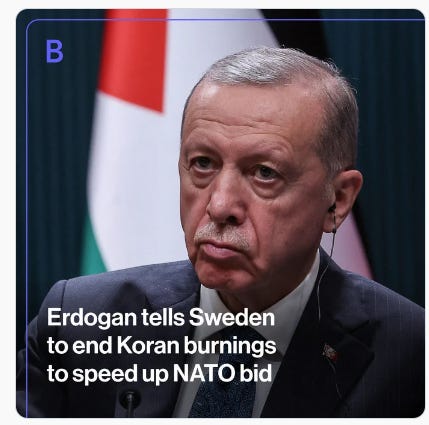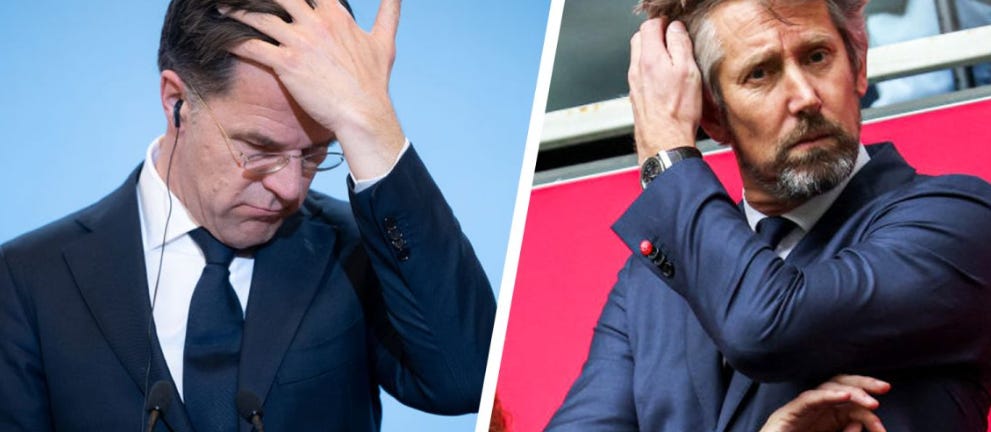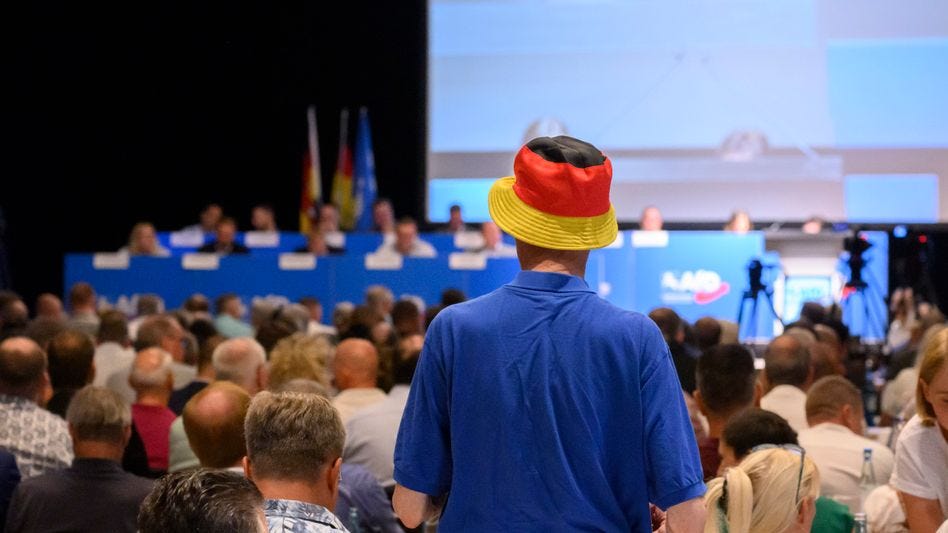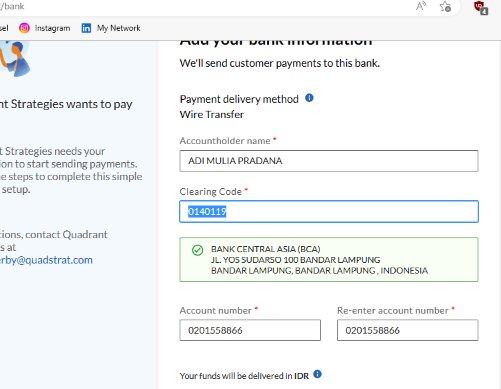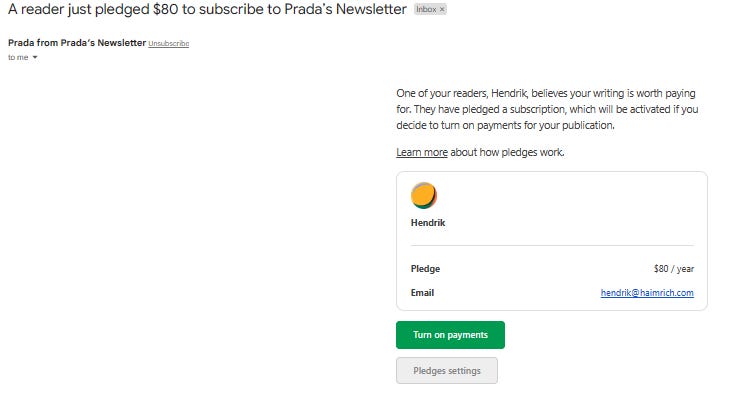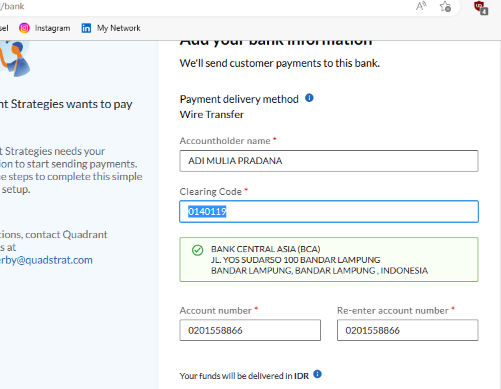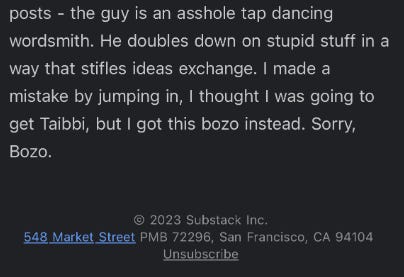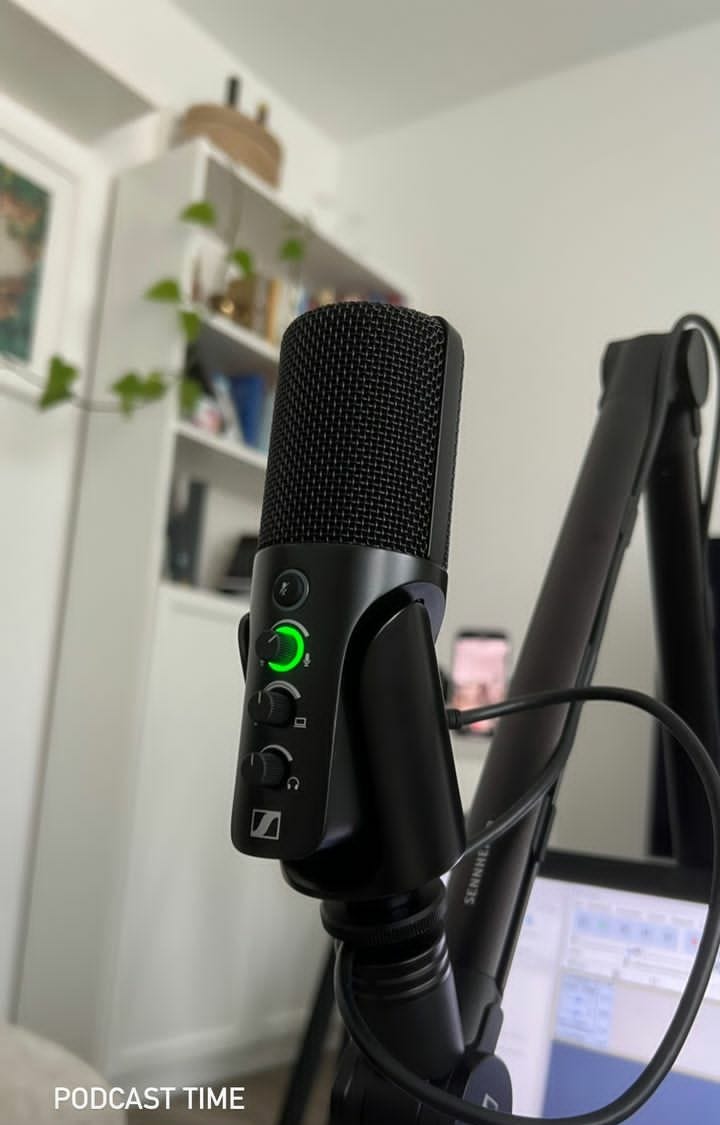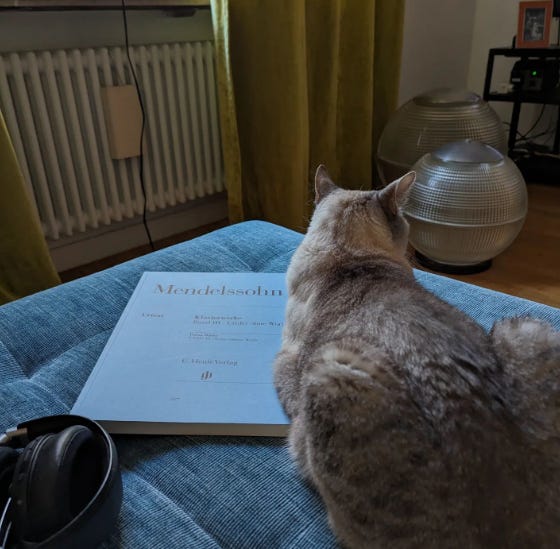DC 8.43pm (Aug 21) / Berlin 2.43am (Aug 22)
Illegal immigration is spiking, the economy is anemic and the war in Ukraine has kept the conspiracy mill churning at capacity. Those developments have vaulted the parties to new heights — and in some countries into government — fueling fears in some quarters of a tectonic rightward shift in Europe’s political landscape. Giorgia Meloni’s Brothers of Italy are already in power, while France’s National Rally is only 1 percentage point from being the country’s top party in the polls.
As evidence for AfD’s rightwing extremism, AfD began campaigning against sanctions on Moscow and urging that cheap natural gas imports from Russia be continued. Once the invasion was launched, the AfD called for peace with Vladimir Putin.
It’s tempting to dismiss this as a seen-this-movie-before moment. Europe’s most successful far-right parties, whether in the Netherlands, Austria or Scandinavia have a long history of electoral success followed by internal division and spectacular implosion.
Yet there’s a fundamental difference this time around that should give anyone who cares about Europe’s political stability pause: Germany’s at the center of the storm.
It’s one thing for Finland or Belgium (the Flemish separatist Vlaams Belang party heads the polls) to veer onto a far-right rail. When it begins to happen in Germany, however, it’s time to start plotting an escape route.
Over the past year, support for the anti-immigrant, pro-Russian Alternative for Germany party (AfD) has nearly doubled.
The party is now in second place, just five percentage points behind the center-right Christian Democrats. Over the summer, the AfD has also succeeded in widening its lead over the Chancellor Olaf Scholz’s Social Democrats.
Much of AfD’s recent popularity can be attributed to persistent infighting and disarray in Scholz’s coalition with the Greens and liberal Free Democrats. Alliance members have been at odds (and at times at one another’s throats) over everything from climate policy to child welfare subsidies since they took office in late 2021.
That said, the primary driver of the AfD’s success is the same issue that has defined far-right parties across Europe for a generation: migration.
A dramatic surge in illegal immigration has accompanied the AfD’s rise, fueling concerns among many in the country that the governing class has completely lost control of Germany’s borders. German police have arrested about 43,000 migrants seeking to enter German illegally so far this year — an increase of more than 50 percent over the same period last year. It’s a safe assumption that many more make it through. The rise, first reported by German daily Bild, was particularly strong on Germany’s border with Poland, where crossings were up more than 140 percent.
“We’ve lost control over illegal migration,” Michael Stübgen, the interior of Germanys’ eastern Brandenburg state said last week.
At the same time, Germany has seen a marked rise in violent crime, which rose more than 20 percent last year. Many Germans see a connection between the rising crime levels and migration. According to police statistics, foreigners, who make up about 16 percent of Germany’s population of 83 million, accounted for about one-third of all crime suspects registered in 2022.
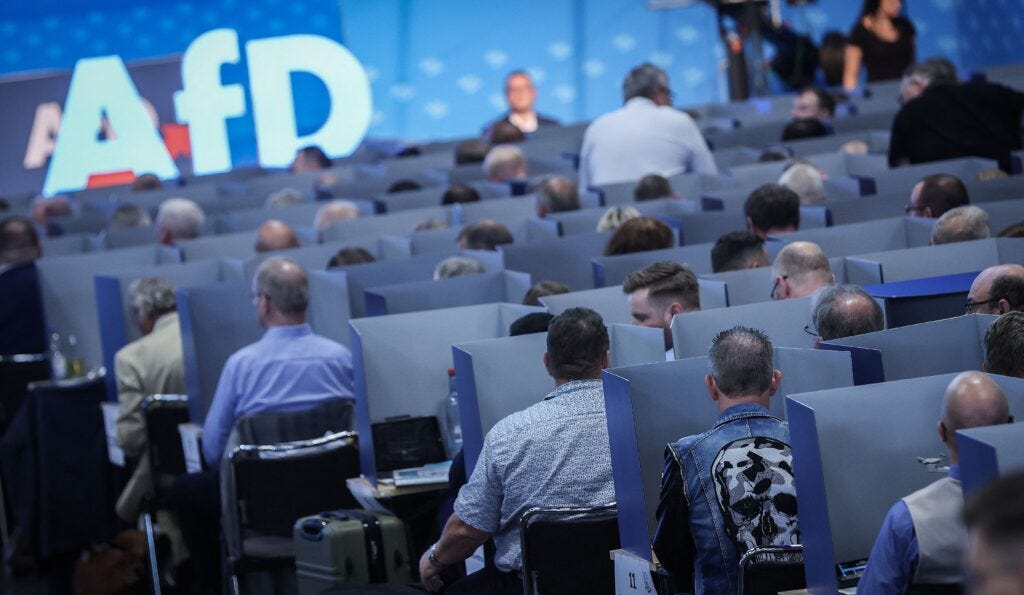
The perception that migrants pose the biggest threat to public security is fueled by almost daily reports of horrific crimes in which foreigners are the primary suspects, such as two recent gang rapes in Berlin.
Though the connection (real and perceived) between crime and migration has long been a mainstay for the AfD, what’s different now is that the current iteration of the debate is happening as Germany faces its worst economic downturn in years, one that some economists worry could herald a fundamental decline in the country’s industrial core.
That’s where Russia’s war on Ukraine comes in. Though the party has always had a soft spot for Russian President Vladimir Putin, its main talking point regarding its opposition to the war is that it’s throttling Germany’s economy, due both to the loss of Russian gas imports and the impact of western sanctions on German exports to Russia.
While the reality is more complicated, the AfD’s rhetoric resonates in large swathes of the country, especially in the former communist east, where the party has a comfortable lead in many areas.
One explanation for why the AfD never managed to break through the way similar parties have elsewhere in Europe is that despite the allure of its anti-establishment, nativist message, Germany’s economy has proved extremely resilient in recent years. In other words, while many voters might not have liked former Chancellor Angela Dorothea Merkel’s migration policy, they were still well off and didn’t gravitate to the AfD. But now, Germany’s economic downturn threatens to change that dynamic for the first time since the AfD was founded in 2013.
What’s particularly striking about the AfD’s surge is that the party lacks the main ingredient that drives most far-right parties to success: a charismatic leader.
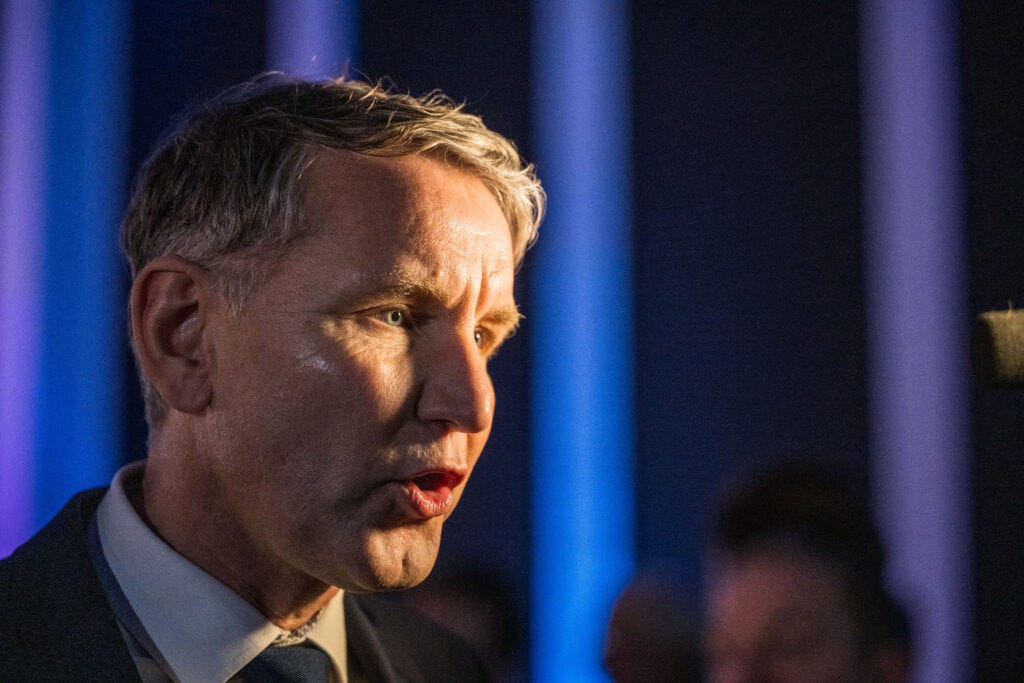
In fact, one could argue the party has no leader at all, much less anyone of the caliber of Meloni or Marine Le Pen. The duo at the top of the party — Alice Weidel and Tino Chrupalla — serve more as administrators than standard bearers. Weidel regularly ranks last in a ranking of Germany’s 10 “most important politicians.” Chrupalla doesn’t even make the cut.
That weakness has given rise to fears in Germany’s political establishment that one of the party’s most extreme figures — Björn Höcke, the leader of the AfD in the eastern state of Thuringia — will emerge as its dominant figure.
Unlike most of the populist leaders who have risen to power in Europe in recent years, such as Hungary’s Viktor Orbán or Austrian rightist Heinz-Christian Strache — Höcke is not a political opportunist.
A former teacher who studied history and is steeped in German philosophy, Höcke is a true ideologue whose views on race and migration recall the fascist rhetoric of the 1930s. In fact, a German prosecutor in Hesse determined last month that demonstrators were well within their rights to call Höcke a “Nazi.” That follows a 2019 ruling by a German court that Höcke could reasonably be referred to as a “fascist” during an organized protest.
While Höcke isn’t particularly popular with the general public, his hold on the party’s base is significant. At a recent party congress, for example, Höcke succeeded in installing one of his acolytes atop the AfD’s candidate list for next year’s European parliamentary election. Höcke’s message that day: “The EU must die for the true Europe to live.”
For a sense of where the AfD might be headed, it’s useful to look farther south, to Austria.
There, the far-right Freedom Party (FPÖ), which was founded by former Nazis in the 1950s and served as a model for the AfD, has been leading national polls since November. After scoring major gains in a string of recent regional elections, the Freedom Party is the odds-on favorite to win next year’s general election.
That’s notable not only because its platform mirrors the AfD’s, but because at this time last summer, the Austrians were exactly where its German cousins are now in the polls.
Freedom Party leader Herbert Kickl, who like Höcke is a true believer in his party’s nativist philosophy, has left little doubt about his intentions: “The goal is to ensure that a two-party coalition is only possible with the FPÖ — naturally with Freedom Party chancellor.”
Maximilian Krah adjusts the microphone in front of him before placing both hands on the lectern and addressing his party’s soaring numbers in public opinions: "We have more than doubled our support within a single year. And one thing is certain: We are far from satisfied!"
The 46-year-old Alternative for Germany (AfD) politician from the eastern state of Saxony – chosen last weekend as the right-wing party’s leading candidate in next year’s European Parliament elections – wants even more. And he speaks about the source of his inspiration. "We heard fantastic speeches here yesterday," Krah says, referring to opening remarks delivered by representatives from other European right-wing parties the previous day.
Krah cites one in particular: "When it comes to our colleague from Bulgaria, you have to say: My goodness. That’s the kind of courage and passion we need to make it happen."
The "colleague from Bulgaria" in question was Kostadin Kostadinov, head of the ultra-nationalist party Vazrazhdane (Revival) and a member of the Bulgarian parliament. He hates the European Union, loves the Kremlin and refers to minorities like the Roma as "parasites" and "inhuman scum."
Speaking at the AfD party convention in Magdeburg 2 weeks ago, Kostadinov said that Germany has been "a cornerstone of Europe" for "more than 1,000 years.” In the last century, he continued, Bulgaria and Germany were "allied twice in war," a reference to World War I and World War II. The AfD delegates applauded loudly.
Unfortunately, Kostadinov continued, Germany is currently "in a political state that is not in accordance with its historical role and importance." It is, the Bulgarian continued, "high time that your country take its rightful place as a Great Power – and not just in Europe!"
For a brief moment, some in the audience seemed uncertain how to react, but the initial murmuring was quickly drowned out by applause, laughter and shouts of approval.
Germany. A Great Power. Not just in Europe.
And this is the speech that Maximilian Krah, the face of the AfD in the campaign for European elections, chose to highlight as an inspiration.
Bild vergrößern
Maximilian Krah is the AfD's lead candidate going into next year's European Parliament elections. Foto: Rafael Heygster / DER SPIEGEL
In Magdeburg, the AfD once again demonstrated that large swaths of the party are right-wing extremist. But the roughly 20 percent of German voters who voice their support for the party in current surveys don’t seem particularly bothered by that fact. Even though party conventions don’t take place in secret, but live on television. Everyone can see that, in contrast to previous AfD party conventions, there was no sign of objection from the audience when speakers on stage delivered anti-democratic or racist speeches. Even anti-Semitic codewords triggered no obvious consternation.
In one speech, for example, a speaker claimed that the "globalists," that ominous international elite, were seeking to enslave German citizens. Or that these self-same "globalists" were pursuing a "Great Reset," a reference to a conspiracy theory which holds that the elite are seeking a realignment of the global economy. The "great replacement" also made an appearance on the AfD stage, the idea that plans are afoot to replace the population with migrants. Thomas Haldenwang, head of the Federal Office for the Protection of the Constitution, Germany’s domestic security agency, said at the conclusion of the event that his agency had taken note of the "right-wing extremist conspiracy theories."
How can a party be so successful despite being essentially labeled right-wing extremist by German state agencies? What has the AfD done right in recent years to boost its support among the country’s voters? And who is guiding the party’s strategy?
One thing is clear: The radicalism on display last weekend in Magdeburg is intentional. Maximilian Krah even called on his party allies to refrain from moderation. People everywhere, the lead candidate said, insist that one must conform to find success. But, Krah continued, his party has chosen to shun that path, making it the "most exciting right-wing party” in Europe at the moment. The delegates in Magdeburg supported the notion.
Bild vergrößern
Robert Sesselmann, the first AfD politician to be elected as a district administrator in Germany Foto: Rafael Heygster / DER SPIEGEL
The most important factors fueling the AfD’s current success are still most likely external: first the refugee crisis, then the coronavirus pandemic and then the Russian invasion of Ukraine and the resulting energy crisis.
Uncertainty, particularly if it is economic in nature, tends to play into the hands of the right wing. Support for the AfD also climbed in summer 2022, when many Germans were concerned that the energy crisis would make for a cold winter. On top of that comes the fact that many people are still skeptical of globalization and the unfair distribution of wealth that has resulted. Trust in politics has dwindled.
The AfD hasn’t just recognized that conditions have been in its favor in recent years, the party also came up with simple-sounding solutions for these vast issues. The AfD has long demanded that Germany’s borders be closed, except to skilled workers, and that the pace of deportations be increased. The party also began calling early on for an immediate end to measures implemented to combat the spread of COVID-19 and also periodically denied the danger of the virus. And even before the Russian invasion, the AfD began campaigning against sanctions on Moscow and urging that cheap natural gas imports from Russia be continued. Once the invasion was launched, the AfD called for peace with Vladimir Putin – showing no regard whatsoever for the survival of Ukrainians.
Last September, AfD co-chairs Alice Weidel and Tino Chrupalla launched a campaign that clearly reflected the party’s primary raison d’être: "Our country first." It was a clear echo of former U.S. President Donald Trump.
Meanwhile, the party’s radical, incendiary character has largely ceased to deter many German voters in numerous parts of the country. For years, the AfD has been attracting people who are overtly racist. And anti-Semites also seem to have found a political home in the party: A representative survey found that the AfD harbors three times as many as other German political parties do.
Bild vergrößern
Thuringian AfD chapter head Björn Höcke, leader of the party's (nominally disbanded) extremist right wing. Foto: Rafael Heygster / DER SPIEGEL
The AfD has been successful in shifting the German debate by focusing on what the party refers to as "metapolitics," a strategy perhaps best exemplified by the firebrand Björn Höcke, head of the party chapter in the state of Thuringia. The focus isn’t just on pushing debates to the right, but on launching a culture war – a conflict that has also enflamed in parts of Germany’s conservative parties and within the liberal Free Democrats (FDP). A culture war focused on things like gender, the country’s public broadcasters and the rights of the LGBTQ community. It is this focus that has helped the AfD to its current wave of success.
By constantly repeating the unsayable, the party has shifted the goalposts on what is acceptable. Meanwhile, values that used to have positive connotations – like moral rectitude and charity – have been devalued. Germans eager to help those in need or stand up for minorities are regarded by the AfD as naïve ideologues. At the same time, the party has managed to trivialize scandals, such as its party donation irregularities, and play down potential PR problems, like previous connections within the neo-Nazi milieu. Taken together, the AfD has managed to normalize its own extremism.
Höcke and his party allies correctly chose to try out its meta-narratives in Germany’s eastern states. In the former East German states, right-wing extremism has been played down ever since the Berlin Wall fell in 1989, despite electoral successes seen by the neo-Nazi party NPD, despite murders and arson attacks, and despite widespread right-wing extremism among youth in the region. The AfD continues to profit from that environment today.
Furthermore, AfD functionaries – primarily through their outsized presence on social media cannels – have managed to expand the public’s acceptance of conspiracy theories. The party has frequently managed to package such theories in a trenchant slogan, such as claims that Germany is under the control of a dictatorship, that it needs a "Reunification 2.0" or that the Office for the Protection of the Constitution is merely an office for "government protection," pursuing a mission of defending mainstream parties from the AfD.
Such narratives have long since become rooted in the party mainstream, accepted by huge swaths of its followers. They believe the party is engaged in a battle against "the system." Which is why warnings that the AfD is anti-democratic and a danger to the German constitution are ignored by so many.
Last but not least, the party has worked hard to shore up its image as a standard conservative party. "Right-wing extremists? I haven’t yet found any among us," AfD co-chair Alice Weidel recently told the German newsmagazine Stern. Leading party functionaries simply smile and deny the presence of fascists and extremists in their ranks – and revert to their tireless claims that the AfD is nothing but a normal conservative party. These days, Weidel and Chrupalla are fond of emphasizing their pasts in business – she as a former consultant and he as the former owner of a painting company. But the party’s initial profile – as a group of more intellectual critics of the European single currency – has long since vanished, with moderate party members having fled the AfD in droves in recent years.
Bild vergrößern
AfD co-chair Alice Weidel preparing for a television appearance Foto: Rafael Heygster / DER SPIEGEL
Bild vergrößern
AfD co-chair Tino Chrupalla in Magdeburg Foto: Rafael Heygster / DER SPIEGEL
The party has grown more and more extreme as a result, and the AfD strategy of playing down its extremism is apparently one it intends to follow in the future as well, at least judging from Magdeburg. Indeed, a new network has formed within the party with the aim of continuing its present course.
It’s 5:27 p.m. last Saturday afternoon and a small group has gathered at the edge of the hall off to the right. Six men are standing around Sebastian Münzenmaier, a member of German parliament and the AfD fraction’s deputy floor leader in Berlin. They have serious, concerned expressions on their faces, and there is plenty of gesticulating. Münzenmaier’s telephone rings and he steps aside to take the call.
The scene takes place just as the party is seeking to finalize the fourth slot on its candidate list for the European Parliament elections – a process that has now extended to two hours. Neither a runoff vote nor new nominees have managed to break the deadlock. Time is running short. And whispers have begun growing louder that the party will not be able to bring its European election convention to a timely end as planned and will instead have to reconvene in January to vote on its campaign platform.
Bild vergrößern
Sebastian Münzenmaier, AfD parliamentarian in Berlin, is seeking to professionalize his party. Foto: Rafael Heygster / DER SPIEGEL
It is precisely the situation that Münzenmaier, a 34-year-old from the state of Rhineland-Palatinate, had been hoping to avoid. Following the party’s convention just outside Dresden last summer, a gathering that had no shortage of turbulence, Münzenmaier was eager to give the party a more professional image, with more unity and less chaos. He began looking around for other young party members who agreed with him – like Damian Lohr and Alexander Jungbluth from his home state, René Aust from Thuringia, Markus Frohnmaier from Baden-Württemberg, René Springer and Dennis Hohloch from Brandenburg. Matthias Helferich from North Rhine-Westphalia and Jan Nolte and Andreas Lichert from Hesse are also part of the clique.
In a chatgroup, the AfD members began assembling a list of candidates that had a good chance of attracting majority support in the party at large. They didn’t just engage in negotiations with party heads Weidel and Chrupalla, but also – especially – with the influential Björn Höcke. As usual, Höcke was preparing his own list for the party’s extremist right wing – even though that wing, called the "Flügel," was officially disbanded three years ago.
The result, dubbed the "consensus list" by many in the AfD, was designed to ensure rapid approval. But in the end, there were once again too many who sought to stand in the way – who saw the search for consensus as an opportunity to get what they wanted. Which is why chaos erupted on Saturday evening as the party sought to name the fourth candidate on the list.
Following its huddle on Saturday evening in the hall, the Münzenmaier network met on Saturday night until 2 a.m. in a hotel room, negotiating with others and ultimately coming to an agreement. As a result, the AfD was able to complete its 15-candidate list by Sunday evening – with 12 of them coming from the original list assembled by Münzenmaier. A notable achievement for the relatively new network.
Bild vergrößern
The AfD voting for its candidate list for next year's European Parliament election last weekend in Magdeburg Foto: Rafael Heygster / DER SPIEGEL
The party convention in Magdeburg shifted the power structures within the AfD. The relatively moderate camp surrounding former party chair Jörg Meuthen didn’t even try to exert much influence, much less come up with a list of its own.
But Höcke’s power appears to have ebbed as well. Some Höcke detractors and rivals even crowed that his wing "is over" or "Höcke has nothing left to say." One former high-ranking functionary from the Höcke camp even said publicly that "the old networks have completely disintegrated."
And it does seem to be the case that the right-wing extremist camp is divided. Höcke is thought to be at odds with several former senior allies, and the head of the Saxony AfD chapter even openly controverted Höcke and proposed a candidate for the third spot on the list that hadn’t been discussed with him. Höcke, it would seem, is badly missing his former right-hand man Andreas Kalbitz – who was kicked out of the AfD for his neo-Nazi activities.
Yet the ideology for which Höcke and his extremist wing stand remains alive and well in the party, and it is also present in Münzenmaier’s network. The new coterie is not concerned about erecting any kind of ideological firewalls – except perhaps to protect themselves from the fringe hardliners who could stand in the way of their career advancement. Such as those party allies who generated headlines with their plans to travel to Russian-occupied Donbas in Ukraine.
Bild vergrößern
Some of the stickers handed out in Magdeburg by the AfD's youth organization Foto: Ann-Katrin Müller / DER SPIEGEL
People close to Münzenmaier say the group has "no problem" with Höcke. "We stand for an AfD that is more professional and doesn’t get bogged down in constant trench warfare. A more disciplined party." Anyone who has "the same goals and the same ideals" is welcome.
Such as René Aust. He is considered to be a longtime Höcke ally in Thuringia. When Höcke’s extremist wing officially disbanded in 2020, Aust gushed on Facebook about Höcke’s largesse and the fact that he had long refrained from running for leadership of the AfD, "subsuming his personal ambitions for the good of the party."
In Magdeburg, Aust was chosen for slot three on the AfD candidate list for the European elections. The 36-year-old is almost the perfect embodiment of the new network: extremist views in a friendly packaging, complete with a perfectly anodyne haircut. He speaks to everyone and smiles a lot. It is only during his speeches that he might ball his fists or gesticulate wildly – addressing migrants with statements like: "You will not make this continent into your new homeland!"
Bild vergrößern
René Aust giving an interview to a right-wing extremist magazine Foto: Rafael Heygster / DER SPIEGEL
Other candidates chosen by the Münzenmaier network also make clear that moderation is not a priority. Such as Alexander Jungbluth from Rhineland-Palatinate, who spoke in Magdeburg of "Europe’s downfall" and of "Muslim gangs." In recent years, he has expressed support for the right-wing extremist association "Ein Prozent." And he is also from a fraternity (called the "Alte Breslauer Burschenschaft der Raczeks”) which tried introducing a kind of Aryan certificate for members of the German fraternity association in 2011.
Another candidate that Münzenmaier’s network propelled into a top 10 slot on the AfD list for the European elections is Irmhild Bossdorf, from North Rhine-Westphalia. In her speech in Magdeburg, she demanded the deportations of millions of refugees. And she said that the Germans should be more concerned about "man-made population change" than about "man-made climate change."
Bossdorf, too, has extensive ties within the new right. Six years ago, for example, she translated a book for a right-wing publishing house by a Dutch extremist who has since been convicted of equating corona policies in the Netherlands with the persecution of Jews during the Holocaust.
It is examples like these that have led the Höcke camp to wave off suggestions that the Magdeburg convention was a defeat for the extremist and his camp from Thuringia. His people readily admit that Höcke himself may be facing headwinds, but overall, everything "is moving in the right direction." None of his allies, though, wish to be quoted by name. Höcke also declined to be interviewed.
In 2020, when his extremist wing was officially disbanded, Höcke exulted that his movement had "historicized" itself – that it had become an essential element within the party. What is now needed, he said at the time, was an impulse that "emphasizes the party’s unity.” He also admitted that his camp "hadn’t only attracted politically competent people," but added that the AfD needed such competence.
========
DEUTSCH
Laut Umfragen würden 20 Prozent der Befragten aktuell ihr Kreuz bei der AfD setzen. Eine Studie hat nun die Agenda der Partei mit den Bedürfnissen der Unterstützer verglichen – und eine große Kluft ausgemacht.
Landesparteitag der AfD Niedersachsen (am 19. August in Celle) Foto: Julian Stratenschulte / dpa
»Wen würden Sie wählen, wenn am Sonntag Bundestagswahl wäre?« – Die Antwort auf diese Frage lautet aktuellen Umfragen zufolge bei einem Fünftel der befragten Deutschen: Alternative für Deutschland (AfD). Eine neue Studie des Instituts für Wirtschaftsforschung (DIW) stellt nun allerdings fest: Die Hauptleidtragenden der AfD-Politik wären ihre eigenen Wählerinnen und Wähler.
Für die Studie wurden die einzelnen Einstellungen der Partei im von der Bundeszentrale für politische Bildung angegebenen Wahl-O-Mat für die Bundestagswahl 2021 mit den Anliegen der Unterstützerinnen und Unterstützer verglichen. Das Ergebnis: ein »bemerkenswertes Paradox«. Demnach würden die Unterstützerinnen und Unterstützer der AfD in fast allen politischen Bereichen unter der Politik der Partei leiden: sowohl hinsichtlich Wirtschaft und Steuern, als auch beim Klimaschutz, der sozialen Absicherung, ebenso bei Demokratie und Globalisierung.
An dieser Stelle finden Sie einen externen Inhalt von Twitter, der den Artikel ergänzt und von der Redaktion empfohlen wird. Sie können ihn sich mit einem Klick anzeigen lassen und wieder ausblenden.
Ich bin damit einverstanden, dass mir externe Inhalte angezeigt werden. Damit können personenbezogene Daten an Drittplattformen übermittelt werden. Mehr dazu in unserer Datenschutzerklärung.
Die Analyse zeige etwa, dass die AfD für eine »extrem neoliberale Wirtschafts- und Finanzpolitik« stehe, da sie etwa die Rolle des Staates beschneiden und die Macht des Marktes vergrößern wolle. In der Sozialpolitik wünsche sich keine Partei stärkere Einschnitte, schreibt Studienmacher Marcel Fratzscher auch auf X, ehemals Twitter. Daneben zeige sich aber, dass AfD-Wählerinnen und Wähler oft eine geringere soziale Teilhabe besitzen, ihr Einkommen und ihre Bildung eher gering bis mittelhoch seien.
Das DIW hält fest: »Würde sich die AfD-Politik durchsetzen, käme es zu einer Umverteilung von Einkommen und sozialen Leistungen von AfD-Wähler*innen hin zu den Wähler*innen anderer Parteien.«
Bei der Klimapolitik gebe es zudem keine Partei, die Maßnahmen systematischer ablehne, so Fratzscher. Außerdem unterscheide sich die Partei in der Gesellschaftspolitik von allen anderen Parteien im Bundestag am stärksten, indem sie Rechte und Freiheiten vor allem für Minderheiten beschneiden wolle. Darüber hinaus wolle sie als einzige Partei die Europäische Union (EU) abschaffen oder massiv beschneiden.
»Wie kann es sein, dass ein Fünftel der Bürger*innen die Politik einer Partei unterstützt, die stark dem eigenen Wohlergehen und den eigenen Interessen zuwiderläuft?«, fragt Fratzscher auf X. Das liege, so seine Studie, etwa an einer falschen Selbsteinschätzung vieler AfD-Anhängerinnen und Anhänger als auch an einer Fehleinschätzung der gesellschaftlichen Realität.
Viele der AfD-Wählerinnen und Wähler würden nicht realisieren, dass sie selbst stark negativ von einer »Politik der Diskriminierung und Ausgrenzung« betroffen wären: »So wären vor allem AfD-Wähler*innen von Arbeitsplatzverlusten, einer schlechteren Infrastruktur und weniger Leistungen, einer Schwächung der Europäischen Union oder Steuersenkungen für Spitzenverdiener*innen stark negativ betroffen«, heißt es in der Studie.
Auf gesellschaftlicher Ebene sehe die falsche Einschätzung der AfD-Unterstützerinnen und Unterstützer demnach folgendermaßen aus: »Nicht wenige AfD-Wähler*innen sind überzeugt, dass eine Rückabwicklung der Globalisierung, ein erstarkender Nationalismus sowie eine neoliberale Wirtschafts-, Finanz- und Sozialpolitik ihnen persönlich bessere Arbeitsplätze, mehr Sicherheit und bessere Chancen verschaffen würden. Dabei würde genau das Gegenteil passieren.«
=========END————
Thank you, as always, for reading. If you have anything like a spark file, or master thought list (spark file sounds so much cooler), let me know how you use it in the comments below.
If you enjoyed this post, please share it.
______________
Professor Hendrik, Professor Eric, and another person, Prof David A. Andelman, former Bureau Chief NYTimes recommended my substack, also some Chief Technology of Financial Times (FT) recommended my substack, not only subscribe. I'd be happy to get more & more PLEDGE and recommendations for better crafted writing (via Bank Central Asia (with my full-name ADI MULIA PRADANA, clearing code 0140119, account number 0201558866 or via STRIPE. For me, prefer Bank Central Asia).
If a friend sent this to you, you could subscribe here 👇. All content is free, and paid subscriptions are voluntary.
—————
——————————————————————————————————
-prada- Adi Mulia Pradana is a Helper. Former adviser (President Indonesia) Jokowi for mapping 2-times election. I used to get paid to catch all these blunders—now I do it for free. Trying to work out what's going on, what happens next. Now figure out and or prevent catastrophic of everything.
(Very rare compliment and initiative pledge, and hopefully more readers more pledges to me. Thank you. My note-live blog about Russia - Ukraine already click-read 6 millions, not counting another note especially Live Update Substack (mostly Live Update Election or massive incident)
=======
Thanks for reading Prada’s Newsletter. I was lured, inspired by someone writer, his post in LinkedIn months ago, “Currently after a routine daily writing newsletter in the last 10 years, my subscriber reaches 100,000. Maybe one of my subscribers is your boss.” After I get followed / subscribed by (literally) prominent AI and prominent Chief Product and Technology of mammoth global media (both: Sir, thank you so much), I try crafting more / better writing.
To get the ones who really appreciate your writing, and now prominent people appreciate my writing, priceless feeling. Prada ungated/no paywall every notes-but thank you for anyone open initiative pledge to me.
(Promoting to more engage in Substack) Seamless to listen to your favorite podcasts on Substack. You can buy a better headset to listen to a podcast here (GST DE352306207).
Listeners on Apple Podcasts, Spotify, Overcast, or Pocket Casts simultaneously. podcasting can transform more of a conversation. Invite listeners to weigh in on episodes directly with you and with each other through discussion threads. At Substack, the process is to build with writers. Podcasts are an amazing feature of the Substack. I wish it had a feature to read the words we have written down without us having to do the speaking. Thanks for reading Prada’s Newsletter.
Wants comfy jogging pants / jogginghose amid scorching summer or (one day) harsh winter like black jogginghose or khaki/beige jogginghose like this? click
Headset and Mic can buy in here, but not including this cat, laptop, and couch / sofa.




